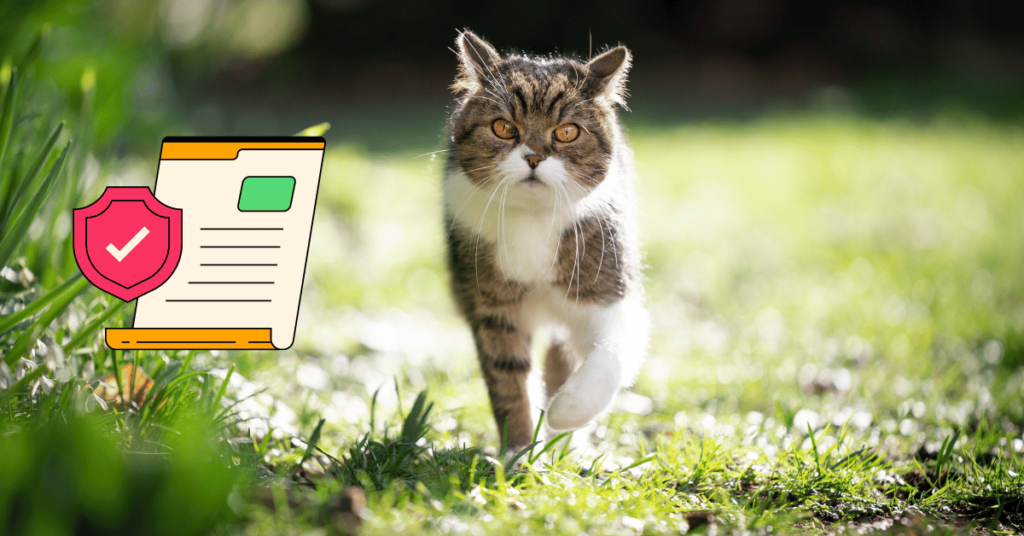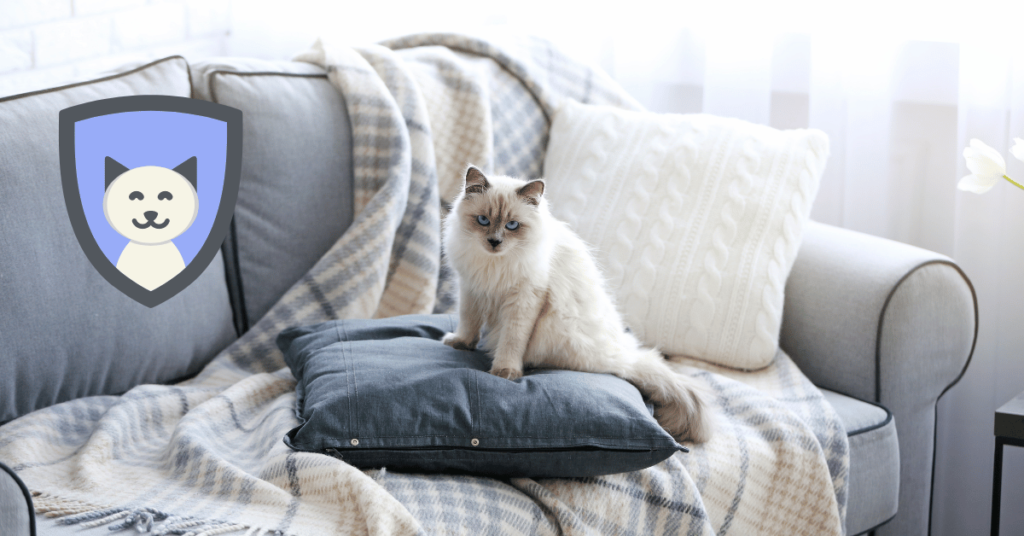Owning an outdoor cat brings a unique set of responsibilities, including making sure they are protected from the many dangers they face outside. While many pet parents may think their cats are self-sufficient, the reality is that outdoor environments pose a higher risk of accidents, illnesses, and other hazards. This is where pet insurance comes in.
Pet insurance for outdoor cats can help cover the costs of unexpected injuries and illnesses, giving you peace of mind knowing your furry friend will receive proper veterinary care when needed. In this article, we’ll explore seven key reasons why outdoor cats benefit from pet insurance and how it can safeguard their health and well-being.
1. Risk of Injuries
Outdoor cats are at greater risk of accidents and injuries compared to indoor cats. One of the most common threats is road traffic accidents, where cars can seriously injure or even kill a wandering cat. Unfortunately, even in suburban and rural areas, cats are not always safe from vehicles.
In addition to traffic, outdoor cats may also engage in fights with other animals, such as stray cats, dogs, or wild animals like raccoons and foxes. These altercations often result in bite wounds, which can become infected if not treated promptly. In more severe cases, injuries from such fights can lead to life-threatening conditions requiring immediate medical attention.
Emergency treatment for injuries can easily cost thousands of dollars, making pet insurance a valuable safety net for unexpected accidents. It can help cover surgery, medications, and other treatments your cat may need after a mishap.
2. Exposure to Diseases

Outdoor cats have a higher chance of contracting diseases from other animals they come in contact with. Common diseases include Feline Immunodeficiency Virus (FIV), Feline Leukemia Virus (FeLV), and rabies. These illnesses can have long-lasting effects on your cat’s health and require ongoing monitoring and treatments.
Even vaccinated cats can sometimes fall ill due to the unpredictable nature of outdoor environments. Veterinary treatments for diseases can add up quickly, but with pet insurance, you can be reimbursed for much of the cost, helping you afford the care your cat needs.
3. Parasite Infestations
Parasites are a common problem for outdoor cats, and they can bring many unwanted guests into your home, including fleas, ticks, and mites. External parasites can cause discomfort, itchiness, and even secondary health issues if left untreated.
Worse still, outdoor cats can contract internal parasites, such as roundworms, hookworms, and tapeworms, by ingesting contaminated water, soil, or other animals. These internal parasites can lead to severe gastrointestinal issues and even organ damage if untreated.
Treatment for parasites often involves medication and follow-up care, which can be costly over time. Having pet insurance can help offset these costs, ensuring your cat receives timely treatment and minimizing the spread of parasites.
4. Accidental Poisoning
Outdoor cats are more likely to come into contact with toxic substances, such as antifreeze, rat poison, or pesticides. Even a small amount of these substances can be deadly. Poisoning requires immediate medical intervention, and treatments can be very expensive.
Symptoms of poisoning in cats include vomiting, lethargy, tremors, and kidney failure. Quick veterinary care is crucial to save your cat’s life, but the costs of such care can range from $750 to $6,000 depending on the substance ingested.
Pet insurance can cover emergency treatments for poisoning, allowing you to act fast without worrying about the financial burden of saving your cat.
5. Harsh Weather Conditions

Outdoor cats are exposed to the elements, which means they can suffer from weather-related health issues. In the winter, they are vulnerable to frostbite, hypothermia, and respiratory infections. In summer, they may suffer from dehydration or heatstroke, both of which can be life-threatening.
Extreme weather conditions require immediate care to prevent long-term damage or even death. With pet insurance, you can ensure that your cat gets the medical attention they need after suffering from weather-related conditions without the stress of high veterinary bills.
6. Higher Risk of Obesity and Health Problems
While indoor cats are typically more at risk for obesity, outdoor cats can still develop health problems from inconsistent access to food and water. They may overeat when food is available, leading to obesity, or struggle with malnutrition if they can’t find enough food.
Obesity in cats increases the risk of diabetes, arthritis, and other chronic conditions that require ongoing management. Pet insurance can help cover the costs of treating these conditions, including medications, vet visits, and special diets that may be necessary to manage their health.
7. The Financial Burden of Senior Care
As outdoor cats age, they become more prone to developing age-related illnesses like kidney disease, hyperthyroidism, and cancer. These conditions often require extensive diagnostic tests, medications, and frequent vet visits to manage. In some cases, treatments like chemotherapy for cancer or surgery for kidney disease can be quite expensive.
Senior cats benefit from pet insurance because it can cover a portion of the costs associated with managing chronic or serious illnesses. Without insurance, the ongoing expenses for treating these conditions can become overwhelming for many pet owners.
Conclusion
Outdoor cats face numerous risks in the outside world, including injuries, diseases, parasites, and exposure to the elements. These risks can lead to high veterinary bills, making pet insurance an invaluable tool for ensuring your cat gets the care they need without breaking the bank.
From accidents and injuries to chronic conditions and senior care, pet insurance provides financial protection and peace of mind for pet parents. By investing in a cat insurance plan, you’re giving your outdoor cat the best chance at a healthy and happy life, no matter what challenges they face in the great outdoors.
So that was all about this article. If you have any further questions feel free to comment down below. We are always here to help you!




